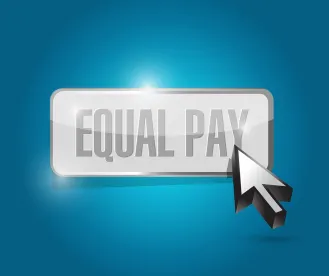Pay equity legislation is burgeoning: in 2017, several jurisdictions—including Albany, New York City, California, San Francisco, Massachusetts, Delaware, Philadelphia and Oregon —approved bans on salary history inquiries. The ostensible purpose of these laws is to prevent the continuation of pay disparities that may have affected female applicants in their work experiences prior to seeking employment with a new company. In addition, on April 9, 2018, the Ninth Circuit Court of Appeals issued an en banc decision in Rizo v. Yovino, holding that prior salary does not qualify as a “factor other than sex” to justify a pay difference under the Equal Pay Act—appearing to support the thinking behind the salary history bans.
With these new laws and legal developments, employers will be facing new challenges in developing policies and procedures that comply with these laws—that vary from jurisdiction to jurisdiction—while making good business decisions with respect to starting compensation for newly hired employees. In addition, many of the new pay equity laws provide greater protections for applicants and employees with respect to pay disparities and place greater burdens on employers to prove that their pay decisions are fair and grounded on legitimate justifications. In honor of Equal Pay Day on April 10, here are the answers to some frequently asked questions that employers may have on this topic.
What are some preliminary steps employers can take to address bans on salary history inquiries?
Employers may consider taking the following steps:
- Become educated on the details of the salary history bans that have gone into effect to determine whether and how those laws affect the company.
- Implement a process for keeping abreast of developments as other jurisdictions consider and pass similar legislation.
- Work with human resources, recruiting, and compensation departments to conduct a critical self-analysis of hiring practices and compensation decisions that rely on salary history. Analyze why the company has been seeking this information, how it has been using it, and whether it is a valid or necessary consideration in the broader sense.
- Review policies and procedures that apply in the affected jurisdictions and consider whether modifications need to be made. If modifications are needed, determine whether to implement them nationwide or to apply modifications only to affected jurisdictions.
- Potential modifications may include the following:
- Removing questions about prior salary, compensation, and benefits from applications and other hiring documents
- Removing questions about prior salary, compensation, and benefits from interview guides and questions
- Identifying new questions to include in these processes that would be permissible
- Developing rules regarding when and under what circumstances questions about salary, compensation, and benefits may be asked; when such information can be used; and/or when such information can be verified (if at all) in compliance with each jurisdiction’s laws
- Provide training to recruiters and hiring managers (and anyone else involved in the interview and hiring process) regarding the policy and procedure modifications and legal issues regarding salary history inquiries.
What are some compliance concerns of which employers may not be aware?
Many companies utilize informational methods of recruiting—sometimes long before a position is even available. Those involved in informational recruiting processes (networking events, informal lunches and dinners, etc.) may not recognize the application of salary history inquiry bans to such situations.
Compliance oversights may also occur if a company chooses to make narrow policy and procedure modifications that apply only to the affected jurisdictions. In such cases, there may be difficulties with ensuring that there is no “cross-contamination” between jurisdictions—especially if the same people are responsible for recruiting and compensation decisions across jurisdictions.
What are your predictions regarding bans on salary history inquiries in the coming year?
It is likely that more jurisdictions will follow suit and enact salary history inquiry bans. Currently, at least 13 states and localities have such legislation pending, and it is likely that some of these laws will pass.
What further steps can employers take to improve equity in compensation decisions in jurisdictions with bans on salary history inquiries?
Companies may want to implement written policies and procedures regarding compensation decisions. In those policies, employers can identify legitimate factors (that comply with applicable laws) that may be considered in making pay decisions.
Companies may also consider having more than one decision-maker involved in compensation decisions. For example, a company could require at least two layers of approval for compensation decisions.
Although pay ranges may not work for all businesses, having pay ranges applicable to particular jobs limits discretion and, thus, limits variations in pay. For this reason, companies may want to use pay ranges. In doing so, the company can provide decision-makers with guidance as to how to make pay decisions within the applicable ranges, using objective factors wherever possible and requiring decision-makers to articulate any subjective factors that were considered.
Another proactive compliance step is to consider conducting a privileged pay equity audit that incorporates legitimate factors and identifies potentially problematic disparities. Doing so can provide the company with an opportunity to correct problems before they lead to liability.




 />i
/>i
